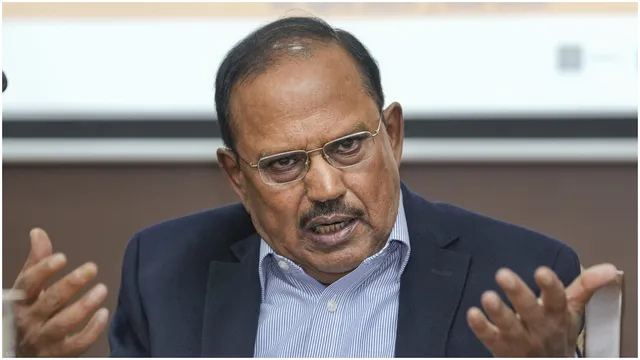- By Shubham Bajpai
- Sun, 31 Aug 2025 08:27 PM (IST)
- Source:JND
The Shanghai Cooperation Organisation (SCO) summit this year has caught the eye of almost the world, given the geopolitical complexities, including the war in Ukraine and the tariff war instigated by United States President Donald Trump.
One of the major breakthroughs in the summit was the visit of Prime Minister Narendra Modi to China, which came after a gap of 7 years. During the summit, both countries were seen making efforts to further reduce the bitterness that peaked during the Galwan clashes in 2020.
The latest visit is in sharp contrast to 2020, when Ajit Doval walked out of the meeting after Pakistan tried to use the platform to push its agenda, challenging Indian's sovereignty.
In September 2020, the COVID-19 pandemic shifted the meetings to virtual mode. The National Security Advisors of the SCO nations were meeting online in a session chaired by Russia.
During the session, Pakistani NSA Dr Moeed Yusuf displayed a political map on which it showed India's Jammu and Kashmir and Junagarh were shown as part of Pakistan.
Pakistan's action was not only unethical but against the SCO rules, which bar bringing up the bilateral issues on the multilateral forums. NSA Ajit Doval objected to it, after which Russia made repeated attempts to get Pakistan to remove the map.
After the repeated warnings yielded nothing, Doval walked out of the session. Russia later confirmed that it did not support Pakistan's provocative action. Nikolai Patrushev, Secretary of the Russian National Security Council, praised Ajit Doval for taking a strong objection and walking out.

